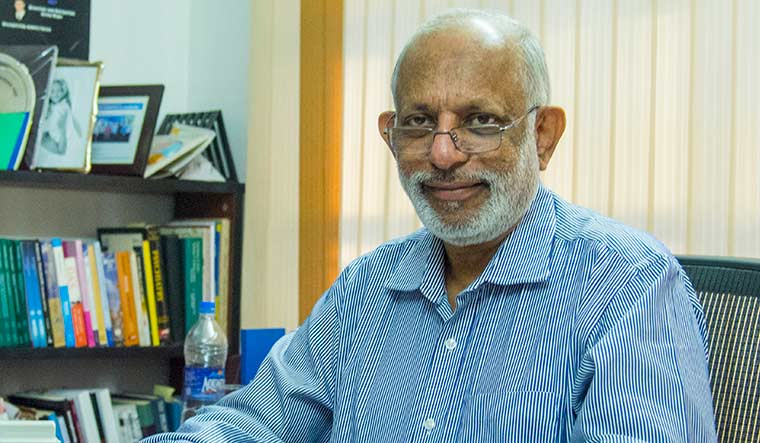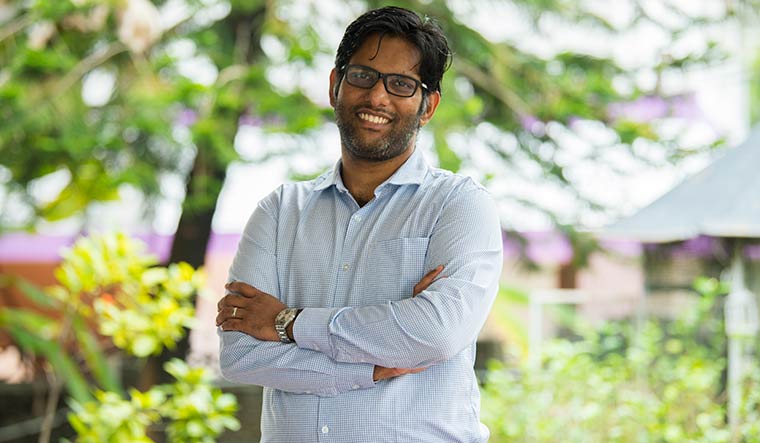Manjiri Indurkar from Jabalpur was baffled as she started losing interest in everything she used to love. “I used to be a regular and studious kid. But suddenly I stopped going to school,”recalls the 32-year-old. “I would just watch TV, not leave the house unless pushed and not meet friends. I did nothing. But I still didn’t know what this was.”Her diagnosis of depression happened much later, after she moved to Delhi. ‘’Those days, I was crying all the time. It was rough,’’says Indurkar, who was pushed to get treatment by her friends.
Depression is not just feeling sad or being tearful and weepy. The inability to find pleasure from activities one usually enjoys—anhedonia—is also tantamount to depression, says Dr Philip John, senior consultant psychiatrist, Peejays Policlinic, Kochi (peejaycl@gmail.com). “The other symptoms of depression include insomnia or hypersomnia, feelings of worthlessness or guilt, poor concentration, poor memory, fatigue or lethargy, suicidal thoughts, agitation and change of appetite,”he says.
Depression can cause structural changes in the brain, too. “If you experience depression for a long time, your brain cells degenerate. There could even be decreased volume in the prefrontal cortex and hippocampus. A good number of studies show that depressive people lose their grey matter; some lose white matter as well,” says Dr Johann Philip, consultant in psychiatry at Peejays. A study led by Dr Jeff Meyer of the Centre for Addiction and Mental Health in Toronto, showed that people with persistent and untreated depression that lasted more than ten years are found to have significantly high levels of brain inflammation. The study published in The Lancet Psychiatry also throws light on how depression changes the brain over the years.
Depression can be triggered by stressful life events, but it has a strong biological and genetic basis, says John. “One of our patients with depression is doing wonderfully well in life. He has achieved all his goals. He has no stress. But at the same time, he goes into recurrent depression,” he says. “It comes from within. Known as endogenous depression, it ultimately comes down to genetic factors and changes in neural networks.” It is caused by a combination of biological, psychosocial and environmental factors. The gene-environment interactions such as parenting or childhood abuse can have a great influence on the genesis of depression, as much as on the outcome of its treatment, says John. According to the World Health Organization, India is the most depressed country in the world—one in five Indians may suffer from depression in their lifetime. Many of them have no one to talk to, and the stigma around mental health and the acute shortage of professionals like clinical psychologists and psychiatrists make matters worse.
Dr Bhaskar Mukherjee, senior consultant psychiatrist at ILS Hospitals, Kolkata, considers depression the most severe cause for loss of human productivity and misery globally. It can kill one in multiple ways. Jael Varma, who hails from Sakleshpur, Karnataka, felt suicidal almost every day after she lost her mother to cancer in 2015. What made it worse was that she had, around the same time, come out of a difficult relationship. “I felt I was in a bottomless pit with no hope left,”says Varma. “I imagined my death a million times, wrote eulogies, letters to all my loved ones and even my will. I told my friends what to do with my pets and books in case something happened to me. Once I almost hung myself, well almost.”
Looking back, Varma wonders how she survived that dark period of depression when she couldn’t eat or even get up in the morning. “Once I drank coffee 16 times and puked and slept in the bathroom because I was too tired to go to my bedroom,” says Varma, a poet, concept model and an account director at a private firm. “I started losing hair, my skin lost its sheen. I just lost interest in looking after my body. I had lost my self-worth, felt extremely lonely and hated my life. I just could not think positive. I stopped believing in love, in humanity, in dreams, in people, and in the world.” During that period, she fell physically sick for almost four months. She tested negative for all ailments, and doctors said they could not diagnose the reason for her fever, fatigue, body ache and dizziness. “I felt like I lived in a rented body. I was dead within,’’ she recalls.
Depression is one of the most complex medical maladies involving several brain circuits and networks. It can cause abdominal problems, too—the gut is referred to as a little brain. Sleep difficulties are also commonly seen in people with depression. Dr S. Kalyanasundaram, a psychiatrist from Bengaluru, says that as depression progresses, patients may feel despondent and it takes a great deal of effort for them to handle daily routines. Patients also tend to skip work. And even if they show up at work, they are not as efficient as before. They end up feeling worthless and useless, leading to suicidal thoughts. Very often, it is caused by mixed anxiety-depressive disorder (MADD), explains Kalyanasundaram.
According to a study published in the New England Journal of Medicine, 69 per cent of diagnosed depressed patients had unexplained physical symptoms as their chief complaint. “Children with depression report having tummy pain. Elderly people with depression often complain of headache, back pain, hand and leg pain,”says Johann. “Anxiety, a major accompaniment to depression, activates the autonomic nervous system which, in turn, produces all these physical symptoms. Muscles go into spasm and you can have headache, body ache or pain in the neck or legs.”
For Babitha Marina Justin, the depressive spells began when she was writing her novel Maria’s Swamp in 2016. Her depression started with a series of physical symptoms like loss of appetite, panic attacks during sleep, incessant and intermittent crying for no reason, negligence of routine and obsession with hygiene. The same phase recurred every year, with a long and painful spell of depression. “While I was writing, there was a larger chunk of my childhood written in a fictionalised form and it was a painful exercise for me. At the same time, I had immense professional pressure and a relationship crisis,’’ recalls Justin, an academic, writer, and artist based in Thiruvananthapuram.
Depression could manifest as anger, too. “In agitated depression, rather than sadness, the primary symptom is hyper-irritability—getting angry easily and throwing things. Many times, such people come for treatment for mood swings and the underlying cause will be depression,” says Dr Sagar Mundada, consultant psychiatrist, Healthspring, Mumbai. Binge-eating can also be a presentation of depression, he says. Another odd presentation is seasonal affective disorder. “In certain seasons like winter, the patient has depressive symptoms which clear once the weather changes,”he says.
Sarbari Dasgupta Gomes, 61, a psychotherapist, has had a long battle with depression. For the last four years, she lacked focus and initiative, low self-worth, hyper vigilance over how people were behaving with her or perceiving her, mood swings, lack of enthusiasm about meeting people and taking up new assignments. “What was most damaging was that I started believing that this was who I was and that I could not change and that there was nothing to look forward to in life,”says Gomes. “One day, I woke up from sleep crying and with a huge sense of sadness that was unbearable. There was no external trigger for that symptom.” She realised then that she could not solve this problem with “willpower”and needed professional help. She called a friend, who is a clinical psychologist, and she referred her to a psychiatrist.
Rishabh Kumar, 20, is yet to figure out ways to deal with his depression. Counselling sessions help relieve the symptoms to a great extent, he says, but sometimes the fatigue that comes with depression becomes overpowering. But not all patients can manage their depression with counselling alone, says Dr B.N. Gangadhar, director, National Institute of Mental Health and Neurosciences, Bengaluru. “For people with depression, the algorithm is as follows,”he says. “We first see whether the patient is suicidal or not. If he is suicidal, we get him admitted. Secondly, we find out how severe his symptoms are. If the patient is suicidal and has symptoms like retardation and agitation, my preference is to use electroconvulsive therapy (ECT). If the symptoms are manageable, antidepressants will be the standard treatment of choice. Antidepressants give good results in most patients.’’
Antidepressants and mood stabilisers help with neuronal repair, says John. “Some of the newer medicines can improve cognition significantly,’’ he says. Patients with major depressive disorder respond well to medication. “People suffering from MDD, especially those with obsessive traits, may become suicidal impulsively. They need to be admitted and put on medication. ECT and medication is a wonderful combination for such patients,’’ suggests John. That said, he adds that bipolar depressives don’t respond to antidepressants, but “to mood stabilisers”.
ECT is one of the oldest therapies used for treating mental health issues. While it provides acute relief of symptoms, patients still have to take medicines. Also, ECT carries stigma. And, patients have to be physically fit, too, to be given anaesthesia. “Despite these constraints, ECT is, by far, the best antidepressant therapy known to the world today,” says Gangadhar. Although ECT continues to be the gold standard among physical therapies for the treatment of depression, newer modalities like repetitive transcranial magnetic stimulation (rTMS) are now increasingly being used, says Dr Joel Philip, consultant psychiatrist, Peejays Policlinic. In rTMS, a noninvasive procedure that lasts half an hour to one hour, an electromagnetic coil is held near the patient’s head. The coil generates magnetic pulses that travel through the skull and the soft tissues in the brain, inducing electrical currents that stimulate brain cells. rTMS can be administered with no or minimal side effects, says Dr Shyam Bhat, physician and psychiatrist at Mindfit, Bengaluru. “There is no anaesthesia; it is an outpatient procedure, during which the patient is fully awake.”
A lot of research is happening into how deep brain stimulation (DBS) can help treat depression. In the neurosurgical procedure, a neurostimulator is placed in the brain, which sends electrical impulses to specific brain regions. “Controlled trials on DBS have not been put forward. That is one of the limitations of DBS,” says Gangadhar.
Then there are other treatment modalities involving ketamine and esketamine for people with severe and resistant depression, says Dr Malay Dave, consultant psychiatrist, Hindu Sabha Hospital, Mumbai. Although initially synthesised as an anaesthetic, ketamine is now prescribed as an antidepressant. “It is useful, in the short term, in reducing suicidal thoughts accompanying a depressive episode,”says Joel. Ketamine is generally administered intravaneously. “Ketamine is currently used only cautiously by psychiatrists owing to its abuse potential, but its efficacy in combating depression has spurred new research for molecules that share the same mechanism of action, with a lowered propensity for misuse,”adds Joel. Esketamine, a derivative of ketamine, can be used as a nasal spray. It gets absorbed instantaneously and helps in the immediate treatment of suicidal thoughts.
Another tried and tested therapy is cognitive behaviour therapy (CBT) that Justin is currently undergoing. “My therapist has also taught me certain tricks to be mindful and conscious to manage myself so that whenever I am afflicted by depressive spells I resort to them, and I also try to make them part of my routine,”she says. CBT helped Varma understand herself better. Her therapist introduced her to mindfulness, and she consciously notices her thought and writes down each emotion. “I have become less cynical about my behaviour pattern. I am not angry anymore,” she says. “I have become tender with myself. In a nutshell, I have started treating myself better. It is like a rebirth.” John adds that Varma suffers from recurrent depression and needs medication to prevent relapses.
Yoga, too, is increasingly being used in the treatment of depression. “If the person is not severely depressed, I would recommend yoga. It works even as a standalone treatment. I prescribe antidepressants or other modalities, only if they don’t get better with yoga,’’ says Gangadhar.
Non-adherence to medication is a major challenge in psychiatric treatment. “Early treatment prevents the degeneration and shrinkage of the relevant brain cells and provides remission. Regular medication for a couple of years also prevents relapse,” says John.
Ignorance and myths about psychiatric medication unfortunately abound. For instance, people think that they are addictive and make one drowsy. Some patients avoid them, fearing that they will be on medication for life and that it could damage their brain, liver and kidneys, turning them into a zombie.
The paranoia around medication shouldn’t stop patients from following the prescription, says Indurkar. “While I understand the fears, I really think this paranoia does so much damage, especially because I know how my medicines have saved me,” she says. “They have kept my hyperactive imagination in control and stopped me from spiralling into the deeper, darker spaces of my psyche.’’
It is also important to stop blaming oneself for the situation. “You are not lazy or lethargic. You just need help, and trust me, you will get it if you seek,” says Varma.
Medication, therapies, yoga, exercise, learning and lifestyle changes are pivotal in repairing the brain circuits damaged by depression, she says. Varma now lives her life passionately. “I can tell with confidence, today I feel great, I look gorgeous. I love my life to the brim. Yes, grief does return. I handle it differently. I relish each moment, be it sadness or happiness, without getting attached to it.’’ Her depression has made her more compassionate. “There are a lot of people with depression,”she says. “All I can say is—let's be kind to each other.”






